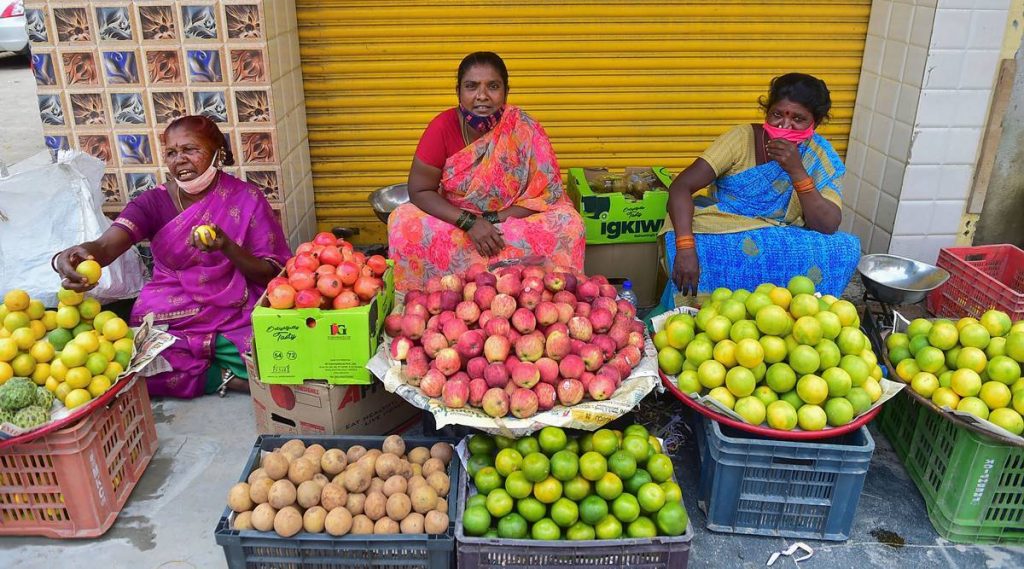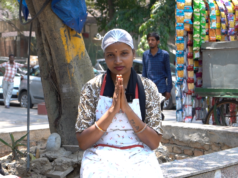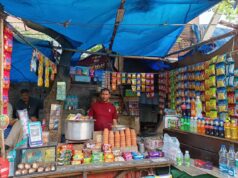The lockdown has delivered a deadly punch to the informal sector. The empty streets are eerily quiet as the hustlers, hawkers, buyers and sellers’ usual energy has melted away. The lockdown has shut down the largest segment of self-employed men and women who personify India’s ineffectively harnessed entrepreneurial spirit – street vendors. However, even in this segment, a gender imbalance is visible.
According to 2018 data by SEWA Delhi, there are close to 3 lakh street vendors in Delhi. However, the Municipal Corporation of Delhi’s official figure accounts for only 1.25 lakh vendors, of which 30% are said to be women. Centre for Civil Society recently held a discussion with 24 women street vendors from Delhi, and uncovered how Covid-19 has impacted them.
A contentious point of the discussion was how the 2020 and 2021 lockdowns have been starkly different. Seema, a vendor from Raghubir Nagar said, “The situation in 2020 was different. Active efforts were made to open the markets while practicing precautions. The government too came to aid at a level. Quarantining was possible because ration was made available at different locations throughout the city. However, things this time around can’t be helped. Our condition is worse than ever before and whom should I even reach out to?”
Stressing the situation further Seema adds, “There is a prevailing mistrust towards the authority. In the 2020 lockdown, we were able to ask around for money in our neighbourhood when we needed it. However, this year the situation is so bad that no one is able to help. These are terrible times.”
COVID’s wave in 2021 has deteriorated the posse in unforeseeable ways. Lata from SEWA stressed the circumstances, “Until last year we had ‘Mahila bazar’ was up and running even when the pandemic was at its prime. In 2021 because of strict shut down at other markets, male vendors started to infiltrate our space and the authorities cracked down on us. To sustain ourselves, us women were left with no choice but to offer bribes but that didn’t last long either and we have nowhere to go anymore.”
Lata reminded us that 2020 also had the provision of accessing e-passes online to continue street vending but those passes don’t stand any longer. Along with e-passes, PM SVANidhi scheme was another initiative by the government to offer relief to the community during uncertain times like these. Under the scheme, vendors could avail a working capital loan of up to Rs 10,000, repayable in monthly instalments in a year. Even though the scheme has received a tremendous response from vendors across the country, repayment became a problem for many women. Given that the markets have remained shut for many months and only open for a few, the existing customer base, location of vending and other factors which kept their businesses a going concern were all gone. Moreover, many people shifted to online ordering as well from the fear of catching the virus if they stepped out. “Online grocery purchases saw a surge during the coronavirus (COVID-19) pandemic in India” says a report by Statista. In such a situation, those who had managed to get loans under the SVANidhi Scheme last year, have now found themselves in a tough position to pay it back. Some women have even had to take separate loans to pay the government back as there have been no relief efforts from the government in this regard.
Dr Shinee, Research Analyst at Institute of Social Studies Trust points out in her research, “Due to a strictly defined time limit the vendors can’t escape these hardships. In fact, street vendors prefer private money lenders because their inability to make returns are more effectively heard by them despite the skyrocketing interest rates issued on these loans.”
Talking about reasonable amends that can be made to make life easier for Street Vendors in India, Lata suggests, “The authorities and other organisations are constantly working to open up other market spaces.” She said that it’s good that discussions about opening up markets and businesses are taking place, but it’s important to include street vendor voices in them, and give equal importance to vendor markets as other markets.
The discussion with women street vendors of Delhi highlighted just how severe the second wave of the pandemic has been, and who it has impacted the most; the poorest of the poor. Since the lockdown, workload of working women has increased as domestic responsibilities have risen, with families staying indoors. Along with battling increasing domestic violence (owed to the lockdown), women street vendors are fighting a battle for their lives and livelihoods, with little relief from the government.
Read More: https://spontaneousorder.in/the-unsung-heroes-of-waste-management/
Post Disclaimer
The opinions expressed in this essay are those of the authors. They do not purport to reflect the opinions or views of CCS.






